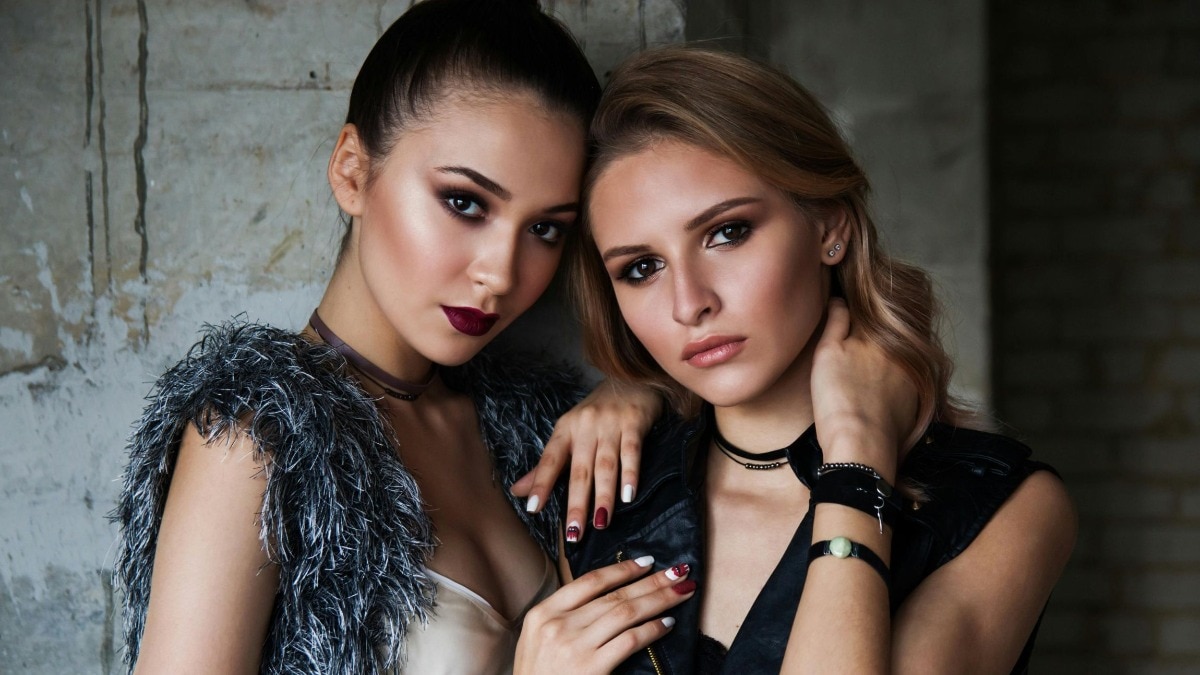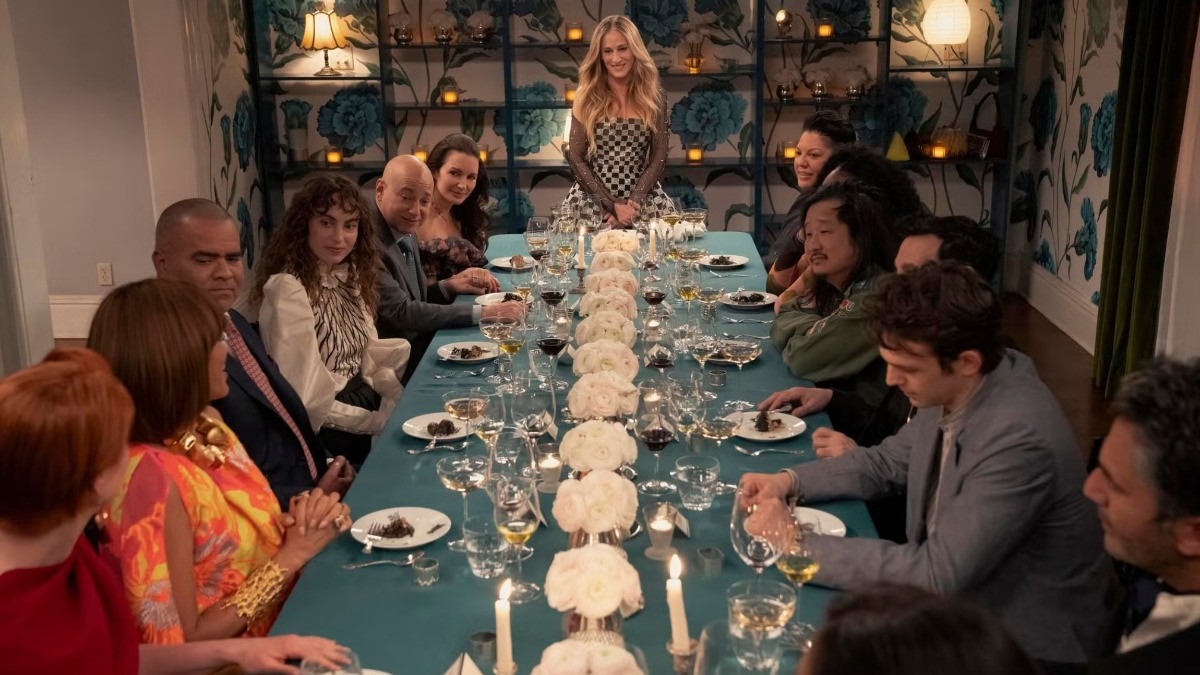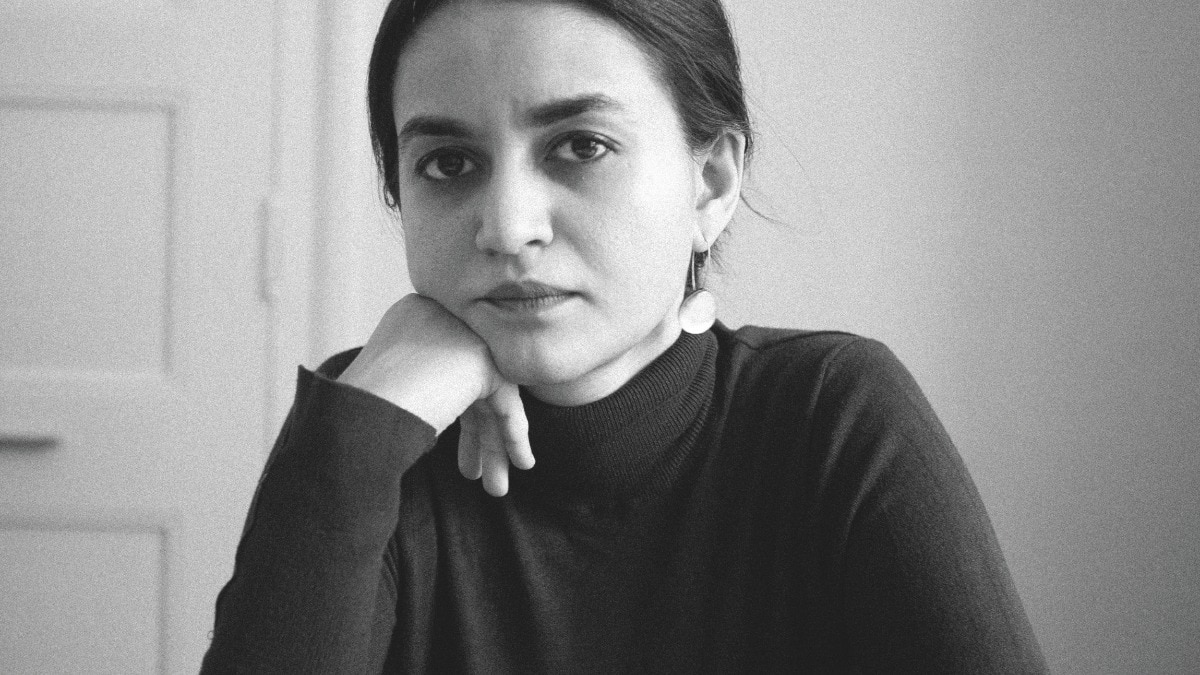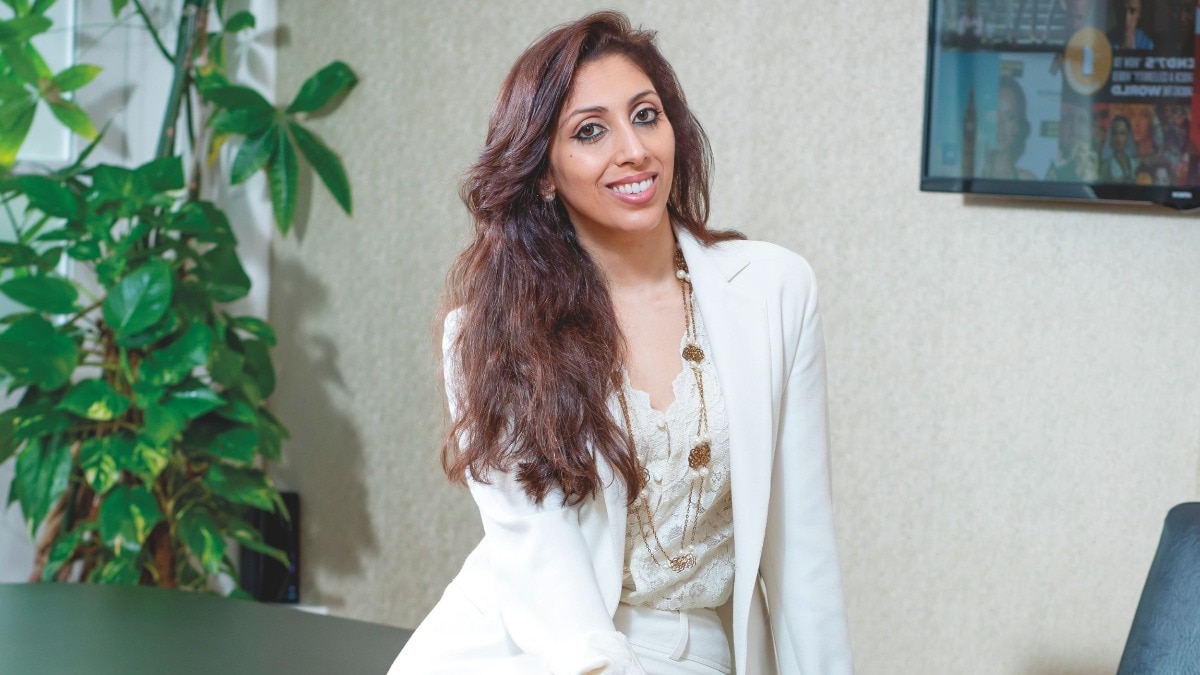
Five prominent women entrepreneurs speak about how they navigate challenges to build successful beauty brands
With their resilience and far sightedness, they work towards a beautiful purpose.


Building a beauty brand is no easy task, especially in a competitive market. The prerequisites of being successful in the beauty space requires innovation, creativity, and an understanding of what the customer needs. We sat down with five phenomenally successful women entrepreneurs to uncover how they turn challenges into opportunities and craft success stories in the beauty industry.
MASABA GUPTA
Founder, LoveChild
Often known as the ‘queen of prints’, Masaba Gupta’s journey in fashion has been inspirational. When she decided to launch her beauty brand, LoveChild, in 2022, her loyalists couldn’t stop gushing over the news. However, not many know that Masaba’s entry into beauty happened way back in 2013 with a collaboration with Lakmé. “At that point, collaborations weren’t even a thing, let alone anything in the space of beauty. I remember seeing what Kylie Jenner had done with lip kits and thinking how great an idea it was. India didn’t have anything of that sort,” she tells Bazaar India.

“When I reached out to Lakmé, I proposed a collaboration where they were to decide a category that made business sense to them. My idea was to just lend our name, expertise, and design language to the product. That was the birth of Masaba Lips, a range of chubby lipsticks that had 10 shades,” adds Masaba. Later, she chased Nykaa for two years—to bring to life her vision of a private label that was a Masaba and Nykaa association. The collaboration that began in 2017 lasted until the coronavirus pandemic struck. At this juncture, she was certain of building a separate engine under the House of Masaba umbrella. That’s when LoveChild came to life.
“We wanted to have a democratic offering from the House of Masaba. Even though we’ve always been considered an affordable brand, we never had a product for a younger girl that could make her entry to the brand much simpler. The products from LoveChild can be looked at as a pocket money purchase,” Masaba explains. Establishing a beauty brand is no easy feat. Besides being capital intensive, many challenges can come in the way of tasting success. “We are at the mercy of an external manufacturer who is essentially supplying products to us. What one can control in beauty is the intent and input, the output is not in your hands.”
While there’s enough data to know what works for consumers, and each brand has its bestsellers, one has to have the courage to do new things. Else, there’s a risk of the brand being termed ‘stagnant’. It’s also hard to stay ahead of the curve when it comes to make-up since timelines and logistical management put a brand behind. “Make-up trends are changing every day, how does one keep up with that? By the time one launches something, there’s a new trend. There should be a lot of classic work because trends are more clickbait-y. As a beauty brand, it’s essential to identify your hero products and double down on them,” the entrepreneur recommends.
Educating the consumer is equally challenging. In India, there’s a perception that if a formulation belongs to an international brand, it has to be a superior product. “It’s a cultural thing. We always prefer an exotic version of something that we have created.” While we are far behind the global standards of beauty, Masaba points out that consumers finally understand the significance of what goes into a product. “This shift is prompting brands to be transparent about the ingredients that are used,” she adds.
As always, there’s much going on at LoveChild. After launching a range of face products like concealers and illuminators last year, the brand recently came out with foundations. Besides, they also introduced an under-eye product. “We also launched our brow range, which is my current favourite. The pencil has instructions on the packaging on how to shade, sketch, and groom your brows. This makes it easier to understand how to use the product. We want every product to be time-saving and efficient.”
NAMRATA SONI AND HANNA STRÖMGREN KHAN
Co-founders, Simply Nam
For celebrated make-up and hair artist Namrata Soni, the idea of Simply Nam was seeded in her mind back in 2015. The desire to launch a cosmetics line for women was strong for Namrata, largely because most of her clients highlighted a dearth of products for varied skin tones. “In India, we have so many undertones, and I wanted to address this gap. In 2019, I met Hanna and got her ready for her wedding. She suggested I start my brand and eventually we began our partnership with Bozzil, an incubator in Sweden,” recalls Namrata.

Her vision was always to have a brand that prioritises quality over quantity, which aligned with Hanna’s thought process. “From the first meeting that Namrata and I had, it was very important for us to focus on the project. I know how to build a brand but she’s an expert in product development since she has worked with Indian skin tones,” shares Hanna. The road was filled with multiple challenges, the biggest being the unavailability of the right manufacturers. It took them almost a year to launch their first colour cosmetic in the midst of the Covid 19 lockdown.
“We have been particular about the ingredients we use and the combination of products in every formulation, to make sure these are worthy of our Indian customers,” adds Namrata. Another challenge was starting online. Most women, Namrata believes, were accustomed to stepping out and trying make-up in physical stores before investing in such products. “Today, things look different. Brands are making an effort to cover every skin tone and colour. People find it easier to shop online today instead of heading to an offline store,” Namrata tells Bazaar India.
Unsurprisingly, it took them nine months to finalise the ultra matte lipsticks. That’s not all. The brand didn’t have a warehouse, and was shipping out its first product—a make-up remover—from Hanna’s husband’s office. Contrary to other brands, Simply Nam launched this product to reinforce the ‘skin first’ philosophy. Between the time they launched and now, the beauty space has become crowded. That has also forced Simply Nam to tap into its strengths and offer products without compromising on quality.
While there’s much innovation happening in the space of beauty and wellness, there’s still a long way to go for India to be at par with international standards, believes Namrata. “Local brands have certainly become conscious of wanting to offer something that hasn’t been seen before. With Simply Nam, I have always wanted to make the process of make-up easy. I don’t want to scare away customers with complicated products. That balance is important to survive in the market today,” she explains. The duo are excited about some new product launches. Hanna says they are looking to tap Gen Z with a powder blush infused with skincare. They are also looking to launch a colour changing lip product that works for summers and monsoons. “Lastly, we are hoping to go offline by the first quarter of 2025.”
VASUDHA RAI
Author, columnist, podcaster
Vasudha Rai’s social media profile is enough to understand her soft spot for holistic beauty. As someone who dons multiple hats—an author, a columnist, and a podcaster—it’s safe to say that she has been instrumental in educating audiences about beauty and wellness over the last two decades.

Her perception of beauty dramatically changed when she was diagnosed with endometriosis in 2006. “It was only after I discovered that endometriosis is an incurable disease that I began making lifestyle changes. Although it didn’t cure my condition, because eventually, I had to get a hysterectomy, it helped clear my skin of chronic rosacea,” Vasudha tells Bazaar India. Her association with multiple ventures is hardly a stroke of luck. As a go-getter, she has gone all out to grab these opportunities. However, Vasudha credits her stint with Harper’s Bazaar as the springboard to everything that came to fruition. “It also instilled a discipline in me, of waking up in the morning at a certain time and having a schedule. I realise how much it contributes to one’s work,” she says.
Her journey in the beauty industry has been fulfilling, though not without challenges. One of the biggest hurdles she faced as a beauty journalist, while with Cosmopolitan in 2002, was a scarcity of computers with an internet connection. “We would take turns to use it. You would think the computer would always be busy, but it wasn’t. At that time, we would rely on international magazines to get information. We were hardly dependent on the internet,” she recalls. Besides, at that time, the Indian beauty market wasn’t as evolved as it is today, which meant writers hardly used any products. “We would speak to a lot of experts and real women. There was a lot of on-ground research that would happen,” shares Vasudha.
While the Indian beauty industry is buzzing with innovation, Vasudha points out that the country has always taken pride in having extensive beauty rituals. What has changed is that women are now willing to spend money on high-quality products, and social media has shrunk the world and brought these products to their fingertips. “I feel my audience is so much more aware of things today, sometimes more than me. I get the best suggestions from them. Previously, people were invested in beauty but more in terms of time; today, it’s both time and money,” she highlights.
For her, the best products are those that marry clean beauty with science. Besides, she loves to indulge in daily massages. “I also love meditating every day. Some days it goes well, on other days it doesn’t…but I don’t like to judge myself.” What’s keeping her busy these days? “I have just signed a two-book deal with Penguin. There is also something I am working on of my own. I am keeping my fingers and toes crossed for it to work out,” quips Vasudha.
ASTHA SURI
Founder and creative director, Naso Profumi
When Naso Profumi, the green perfumery, was born in 2019, Astha Suri had identified a gap in the market between international brands and Indian mavericks. There was hardly any route to perfume education—with no brand speaking about the narrative behind Indian perfumes, factory workers, and agriculturists. “We aimed to become a leading perfumery. At the same time, we wanted to highlight the homegrown perfumers and the perfumery strength our country has to offer,” Astha tells Bazaar India.

However, shortly after Naso’s launch, the pandemic struck. The biggest challenge was supply chain management and getting customer testimonials. “To sell, we first had to make them smell. With a ‘no touch and no smell without a mask and glove’ narrative, there were only so many ways we could alter, and make sure our perfumes were being tested. We were lucky enough to have a very supportive audience,” recalls Astha. The brand had to bend backwards to navigate through this challenge. Astha shares that her team brainstormed and used their creative skill sets to market the perfumery, while getting people to get a taste of the brand story and heritage, all through offline set-ups. “It was an ‘everything, everywhere, all at once’ situation for us,” adds Astha.
With buzzwords like sustainability being thrown around, how does a brand like Naso walk the talk? She responds, “Whether it’s sourcing steps in the factory or research and design on ever evolving ingredient bases, everything is managed mindfully by our employees.” The brand is taking consistent steps to make sustainable choices throughout the manufacturing process. “We are constantly working on educating our audience through our thoughtful and real Instagram posts,” she highlights.
The good news, Astha points out, is that all their hard work in brand communication has finally yielded results after three to four years. “Trust me, it’s a very short time to change people’s preferred favourite scent patterns and choices. Interestingly, many people are ditching their old branded perfumes for new smells and niche brands. Consumers are far more conscious today, of what they wear and how they smell, and also where the fragrance is made, sourced, and procured,” Astha elaborates.
Has the evolving nature of the beauty industry helped a brand like Naso to bloom? “There are different consumers out there,” says Astha. While a few are conscious and aware of the hazards caused by beauty products and hence go for trustworthy brands, some people believe in celebrity run beauty brands being the future. “It’s far too premature to give a verdict but it feels great to see the projection of this industry taking more vocal turns. I would say ever changing is great till you come from reliable knowledge, history, and information about your niche,” adds Astha. Some of the bestsellers from the brand include Saffron Musk Amber by Naso and A Starry Night by The Lab by Naso. And there’s much more in the pipeline. “We are working on designing a class collection focused on Indian teas and coffee. Our brand story resonates greatly with Indian flavours and palates.
SHAMIKA HALDIPURKAR
Founder, d’you
About five years ago, the idea of d’you struck Shamika Haldipurkar. When she moved to India in 2018 after living abroad, Shamika sought homegrown brands that metropolitan crowds gravitated towards. “I observed a common trend. Most people requested their families, who were travelling overseas, to get something from Sephora or Cult Beauty. I realised there was an appetite for a more sophisticated and innovative brand that offered high-performing formulations. But there was no one catering to this need,” she tells Bazaar India. Thus, the idea of d’you was born to fill in the gap for a premium brand with a global consumer in mind. However, Shamika was mindful of not adding to the landfill of products in a cluttered market.

“I knew there was no reason to start a brand if I couldn’t offer anything new with a product. I spent two years building Hustle, a one-and-done solution in a bottle. One doesn’t have to layer six serums or figure out what to use first and what to put on next. That was the pain point I was looking to solve,” shares Shamika. The brand followed a similar approach with their next product, In My Defence. While several ceramide moisturisers were already available, most were super thick. “We wanted to launch a lightweight formula, with the highest percentage of ceramide possible. After this, we also went on to create reusable under-eye patches made with 100 per cent medical-grade silicone, and a nourishing cleansing balm,” she adds.
The evolving nature of the beauty industry, Shamika admits, has its share of benefits and negatives. While India is finally being looked at as a market with an appetite for beauty offerings, several international brands are making it to the country too.
From a business perspective, it boils down to the survival of the fittest. “Ever since the barrier to entry has been reduced, many brands are launching similar kinds of products, replicating each other. If you launch products with the intention that a trend is hot right now, the longevity of the brand will be low. Only brands that can differentiate themselves will stand out,” points out Shamika.
She is also against using marketing terminologies like cruelty free, green, or sustainable unless someone walks the talk. “We don’t use these terms. You can’t test on animals, so why use it as a marketing callout? We say our skincare is for all genders, skin types, and age groups. We also try to showcase this through our marketing campaigns,” she educates.
Shamika has had her share of challenges in this journey, most of which have been around supply chain and production. “Since we do all our manufacturing and R&D overseas, there are a lot of compliances on the supply chain, so we have to navigate through slower production cycles.” After tasting success with many of their products, d’you is set to launch one new product in each category, including cleansers and sunscreens. “We will also venture into colour cosmetics, but that’s at least a year or a year-and-a-half away.”
Feature Image: Gettyimages.com
This article originally appeared in Harper's Bazaar India, April-May 2024 print issue.
Also Read: Three mom-daughter duo share beauty tips passed down through generations
Also Read: Nail the draped blush trend with these creamy blushes










